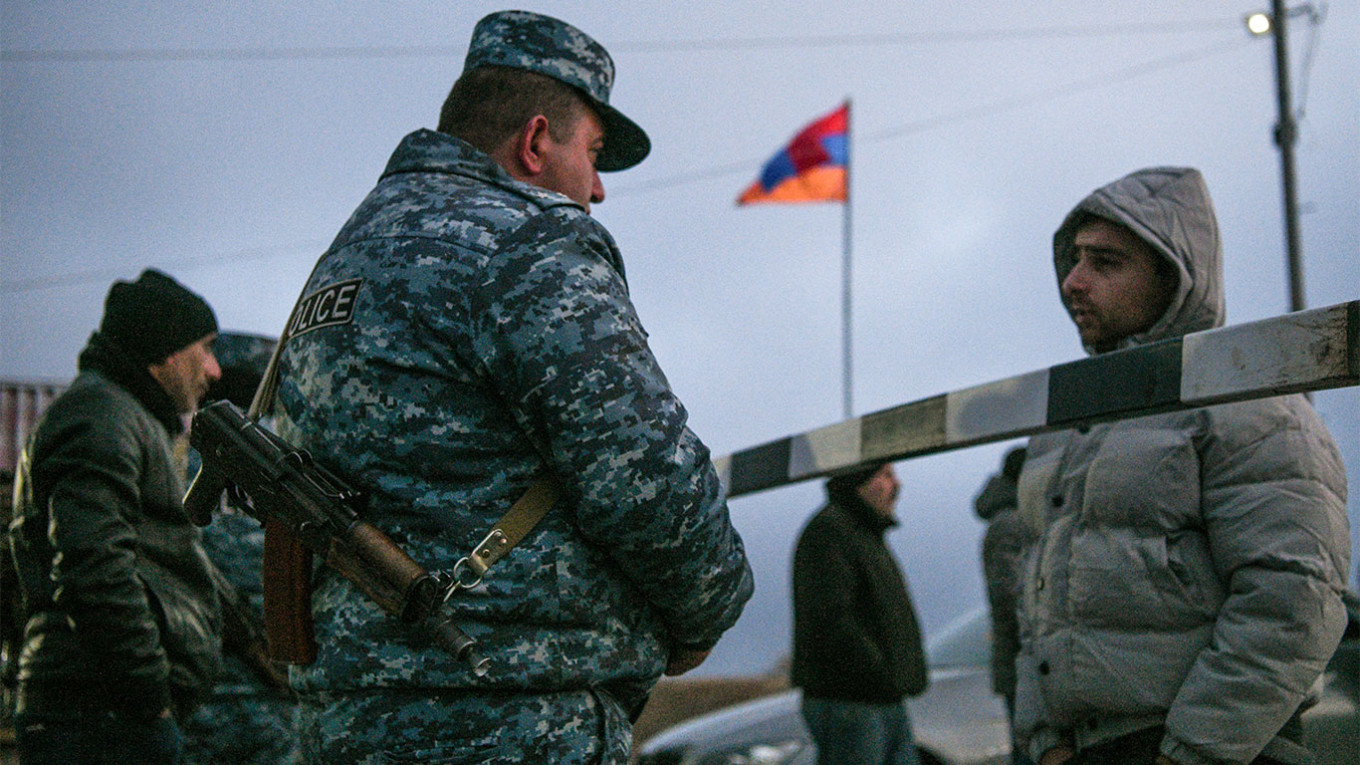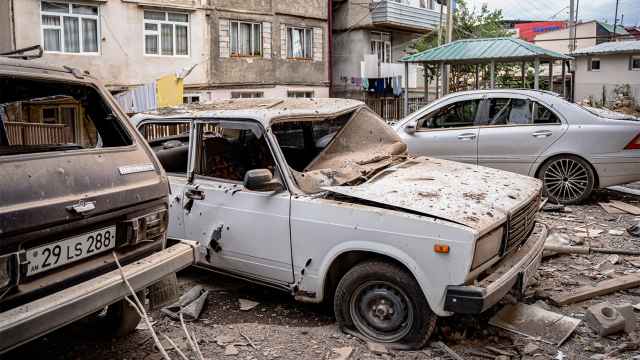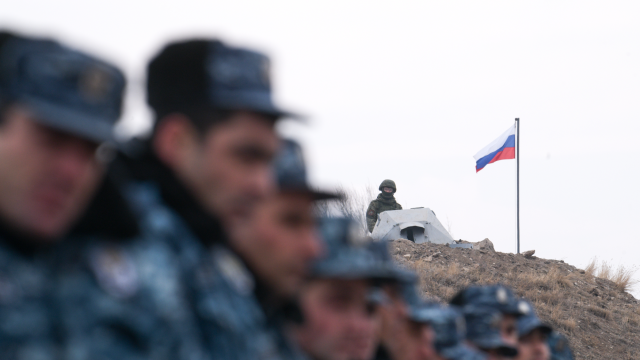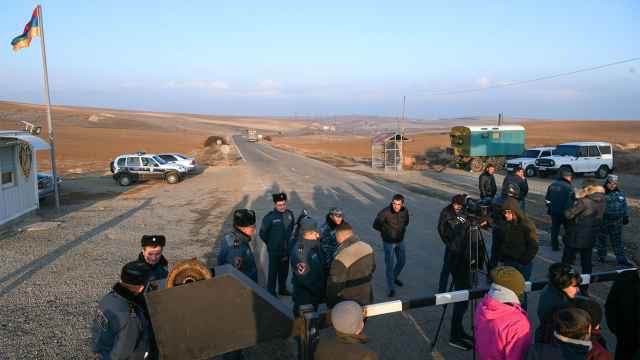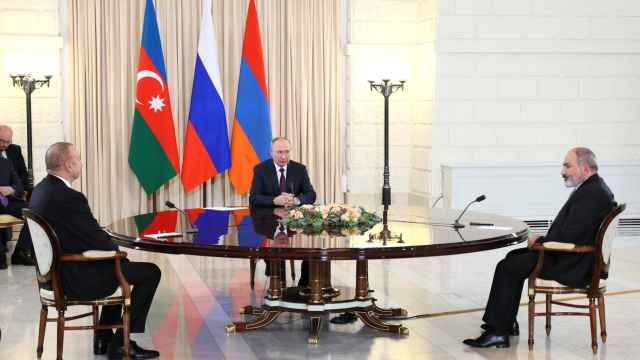Russia on Thursday accused the EU of seeking to fuel "geopolitical confrontation" by sending a civilian mission to monitor Armenia's volatile border with Azerbaijan.
Moscow has sought to maintain its role as a powerbroker between the ex-Soviet republics despite being bogged down in its offensive in Ukraine.
On Monday, the EU launched a civilian mission to help monitor Armenia's border with Azerbaijan, bolstering the bloc's role in a region viewed by the Kremlin as its sphere of influence.
The mission has been launched during what Armenia describes as a "humanitarian crisis" ravaging the breakaway region of Nagorno-Karabakh.
Since mid-December, a group of Azerbaijanis has been blocking the only road into Karabakh from Armenia to protest what they claim is illegal mining causing environmental damage, leading the mountainous region of some 120,000 people to run short of food, medicines and fuel.
Russia's Foreign Ministry said on Thursday the EU mission would "only fuel geopolitical confrontation in the region and exacerbate the current contradictions."
Moscow accused the EU of seeking to expand its influence in the region at Russia's expense.
"The attempts of the European Union to gain a foothold in Armenia at any cost and to curb Russia's mediation efforts can damage Armenians and Azerbaijanis' fundamental interests," the Foreign Ministry said in a statement.
"We are convinced that the key factor for stability and security in the region for the foreseeable future remains the Russian peacekeeping contingent."
Armenia has voiced dismay at what it sees as Moscow's failure to prevent persisting tensions in the region.
It says Russian peacekeepers deployed in the region have not prevented the blockade.
'Ethnic cleansing'
The United States threw its support behind the EU mission.
"We welcome efforts by partners including the European Union to build confidence in the region and to ensure an environment conducive to direct dialogue between Armenia and Azerbaijan," State Department spokesman Vedant Patel told reporters.
U.S. Secretary of State Antony Blinken has also stepped up Washington's role in diplomacy between Armenia and Azerbaijan through regular talks with the two countries' leaders. Earlier this week he urged Azerbaijan to lift the blockade on the road into Karabakh.
Earlier Thursday, Armenian Prime Minister Nikol Pashinyan accused Baku of exerting "economic and psychological pressure to provoke an exodus of Armenians from Karabakh."
"This is a policy of ethnic cleansing," he told a cabinet meeting in the capital Yerevan.
He said kindergartens, schools and universities remained closed in Karabakh due to the blockade, with thousands of students "being denied their fundamental right to education."
Azerbaijani President Ilham Aliyev rejected the accusation as "groundless, false, and absurd."
He said Russian peacekeepers and the Red Cross had ensured the delivery of civilian goods to Karabakh.
"Thousands of civilian cars have entered and left Karabakh since Dec. 12," he told a newly appointed French ambassador.
When the Soviet Union collapsed in 1991, ethnic Armenian separatists in Karabakh broke away from Azerbaijan.
The ensuing conflict claimed around 30,000 lives.
Another flare-up in violence in 2020 claimed more than 6,500 lives and ended with a Russian-brokered truce that saw Armenia cede territories it had controlled for decades.
A Message from The Moscow Times:
Dear readers,
We are facing unprecedented challenges. Russia's Prosecutor General's Office has designated The Moscow Times as an "undesirable" organization, criminalizing our work and putting our staff at risk of prosecution. This follows our earlier unjust labeling as a "foreign agent."
These actions are direct attempts to silence independent journalism in Russia. The authorities claim our work "discredits the decisions of the Russian leadership." We see things differently: we strive to provide accurate, unbiased reporting on Russia.
We, the journalists of The Moscow Times, refuse to be silenced. But to continue our work, we need your help.
Your support, no matter how small, makes a world of difference. If you can, please support us monthly starting from just $2. It's quick to set up, and every contribution makes a significant impact.
By supporting The Moscow Times, you're defending open, independent journalism in the face of repression. Thank you for standing with us.
Remind me later.


